[COLOR="PaleTurquoise"]
2014.04.19
[/COLOR]

Titanic (1943) DVD5 - German Epic - Eng Subs - Sybille Schmitz, Hans Nielsen [DDR]
Titanic is a 1943 German Language propaganda film made during World War II in Berlin by Tobis Productions for UFA. The film was commissioned by Nazi Propaganda Minister Joseph Goebbels and enjoyed a brief theatrical run in German occupied Europe starting in November 1943—but not in Germany proper by order of Goebbels himself who feared that it would weaken the German citizenry's morale instead of raising it. Goebbels later banned the playing of the film, and it did not have a second run. The film used the sinking of the RMS Titanic as a setting for an attempt to discredit British and American capitalist dealings and glorify the bravery and selflessness of German men. This was also the first film on the topic simply titled Titanic and the first to combine various fictional characters and subplots with historical personas and events of the sinking; both conventions went on to become a staple of future Titanic films.
CAST:-
Sybille Schmitz as Sigrid Olinsky
Hans Nielsen as 1st Officer Petersen
Kirsten Heiberg as Gloria
E.F. Fürbringer as Sir Bruce Ismay
Karl Schönböck as John Jacob Astor
Charlotte Thiele as Lady Astor
Otto Wernicke as Captain Edward J. Smith
Franz Schafheitlin as Hunderson
Sepp Rist as Jan
Monika Burg as Maniküre Heidi
Jolly Bohnert as Marcia
Fritz Böttger as Lord Douglas
Hermann Brix as Head of Orchestra Gruber
Lieselott Klinger as Anne
Theodor Loos as Privy Councillor Bergmann
Karl Meixner as Hopkins
MOVIE REVIEW:- Titanic (1943) German Language
The film opens with a proclamation to the White Star stockholders that the value of their stocks is falling. The president of White Star Line J. Bruce Ismay promises to reveal a secret during the maiden voyage of the Titanic that will change the fate of the stocks. He alone knows that the ship can break the world record in speed and believes this will raise the stock value. Ismay and the board of the White Star plan to lower the stocks by selling even their own stocks in order to buy them back at a lower price. They plan to buy them back just before the news about the record speed of the ship will be published to the press.
The issue of capitalism and the stock market plays a dominant role throughout the movie. The hero of the film is fictional German First Officer Herr Petersen (played by Hans Nielsen) on the ill-fated voyage of the British ocean liner RMS Titanic in 1912. He begs the ship's rich, snobbish and sleazy owners to slow down the ship's speed, but they refuse and the Titanic hits an iceberg and sinks. The passengers in first class are shown to be sleazy cowards while Petersen, his lover Sigrid Olinsky (Sybille Schmitz), a recently impoverished Russian aristocrat, and other German passengers in steerage are shown as brave and kind. Peterson manages to rescue many passengers, convince Sigrid to get into a lifeboat, and saves a young girl, who was obviously left to die in her cabin by an uncaring, callous British capitalist mother. In the ship's final death throes, Petersen leaps from the deck with the little girl still in his arms and is then pulled aboard Sigrid's lifeboat and the occupants watch in horror as the Titanic plunges beneath the waves. The film ends with the British Inquiry into the disaster, where Peterson testifies against Bruce Ismay, condemning his actions, but Ismay is cleared of all charges and the blame is placed squarely on the deceased Captain Smith's shoulders. The epilogue states that "the deaths of 1,500 people remain un-atoned, forever a testament of Britain's endless quest for profit."
HISTORY OF THE FILM:-
Most of the film was shot at the German-occupied Polish Baltic sea port of Gdynia (renamed Gotenhafen), on board the SS Cap Arcona, a passenger liner which itself was sunk a few days before the end of World War II by the Royal Air Force on May 3, 1945, with loss of life more than three times than that on the actual Titanic. The ship itself had been filled with Jewish prisoners that the Nazis had put there in hopes that the ship would be destroyed by the British. The scenes with the lifeboats were filmed also on the Baltic Sea and some of the interior scenes were shot in Tobis Studios.
Titanic endured many production difficulties, including a clash of egos, massive creative differences and general war-time frustrations. After one week of troubled shooting on the Cap Arcona, Herbert Selpin called a crisis meeting where he made unflattering comments about the Kriegsmarine officers, who were more concerned with molesting the female cast members rather than doing their job as marine consultants of the film. His close friend and co-writer of the script, Walter Zerlett-Olfenius, reported him to the Gestapo and Selpin was promptly arrested and personally questioned by Joseph Goebbels, who was the driving force behind the Titanic project. Selpin, however, did not retract his statement—something which infuriated Goebbels since the Propaganda Minister had placed his trust in Selpin to direct his propaganda epic. Within twenty-four hours of his arrest, Herbert Selpin was found hanged in his jail cell, a development which was ruled a suicide. However, in reality, Goebbels had arranged for Selpin to be hanged and his death to be misleadingly cast as a suicide. The cast and crew were angry at the attempt to obfuscate Selpin's obvious murder and attempted to retaliate, but Goebbels countered them by issuing a proclamation stating that anyone who shunned Zerlett-Olfenius would answer to him personally. The unfinished film, on which the production costs were spiraling wildly out of control, was in the end completed by an uncredited Werner Klingler.
The premiere was supposed to occur in early 1943, but the theatre that housed the answer print was bombed by Royal Air Force planes the night before the big event. The film went on to have a respectable premiere in Paris in November 1943 "where it was surprisingly well-received by its audience" and also played well in some other capital cities of Nazi occupied Europe such as Prague. But Goebbels banned its playing in Germany altogether, stating that the German people—who were by that point going through almost nightly Allied bombing raids—were less than enthusiastic about seeing a film that portrayed mass death and panic.
Titanic was re-discovered in 1949, but was quickly banned in most western countries. Shortly after the war, the film, dubbed in Russian, was screened across the Eastern Bloc as a "trophy film." After the 1950s, Titanic went back into obscurity, sometimes showing on German television. In 1992, a censored, low quality VHS copy, was released in Germany. This version deleted the strongest propaganda scenes, which immensely watered down its controversial content. Finally, in 2005, Titanic was completely restored and, for the first time, the uncensored version was released in a special edition DVD by Kino Video.
THEMES AND PROPAGANDA CONTEXT:-
Titanic makes the allegory of the liner's loss specifically about British avarice rather than, as most Titanic retellings do, about general human arrogance and presumption. This fits in with other works of anti-British propaganda of the time such as The Maiden Joanna, The Heart of a Queen, The Fox of Glenarvon, and My Life for Ireland.
Undermining the intended effect were the scenes of British and French panic and desperation. Scenes of steerage passengers separated by crew members and desperately searching for their loved ones through locked gates and a chain link fence bore an uncanny resemblance to what was happening in German concentration camps during that time. This contributed to the film being banned by Goebbels inside Germany.
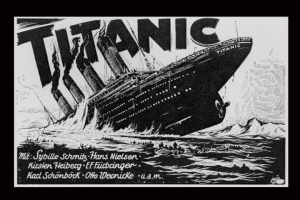
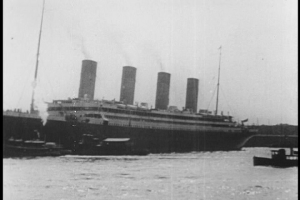
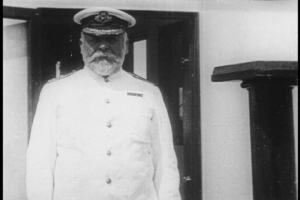
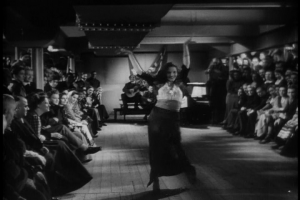
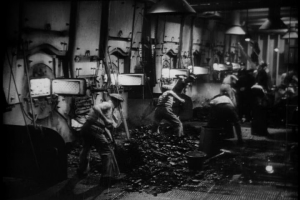
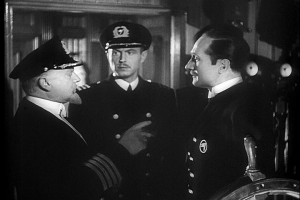
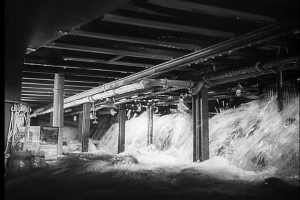
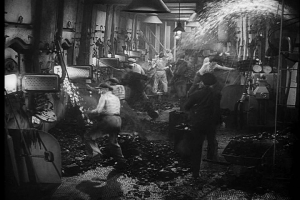
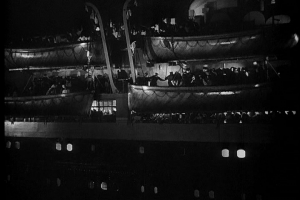
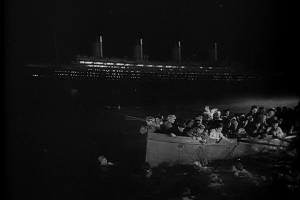
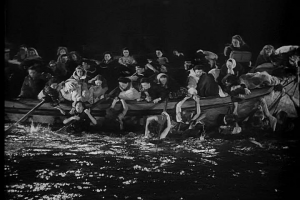
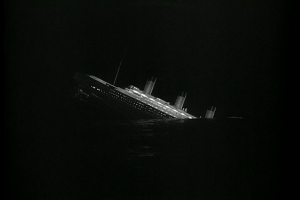
TECHNICAL SPECIFICATIONS:-
Video Codec: MPEG-2
Video Bitrate: 4999 kbps
Video Resolution: 720x480
Video Aspect Ratio: 1.333:1
Frames Per Second: 23.976
Audio Codec: AC3
Audio Bitrate: 192kb/s CBR 48000 Hz
Audio Streams: 2
Audio Languages: German
RunTime 85 mins
Subtitles: English
Ripped by: Trinidad [DDR]
Duration:85 mins












